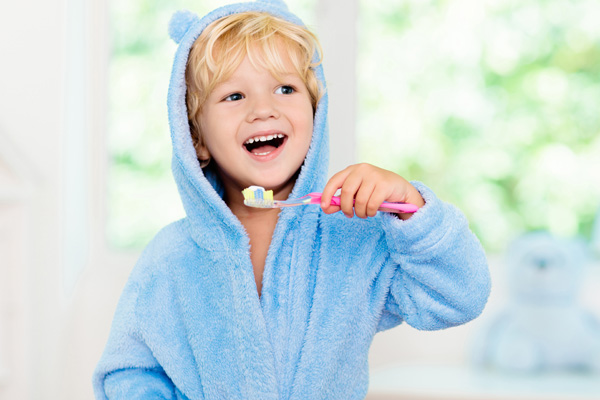 Toothbrushing is an essential practice for dental health. Doing it along with flossing can help children set a good dental care routine at an early age. It takes patience to teach your child to do it right until the habit forms. If you want to know more toothbrushing tips you can share with your young kids, here are the details.
Toothbrushing is an essential practice for dental health. Doing it along with flossing can help children set a good dental care routine at an early age. It takes patience to teach your child to do it right until the habit forms. If you want to know more toothbrushing tips you can share with your young kids, here are the details.
Beginning the habit
Toothbrushing starts when the first tooth erupts. This will be at around six months old. Using a soft wet cloth will be a good start. A small, soft-bristled toothbrush will do the job as well. This will introduce teeth cleaning in a gentle way.
Cleaning the surfaces of the gums and teeth two times a day will create a routine. This will be in the morning and before sleeping at night. The baby will think of brushing as an important ritual. There could be some resistance at first, but this will go away with consistent practice.
Selecting the right toothpaste and toothbrush
The pediatric dentist always reminds parents of being careful with toothpaste with harsh abrasives for enamel. A young child’s teeth are still developing. The protective enamel outer layer is still thin. Abrasive toothpaste will only erode and weaken the young teeth. This will leave the child vulnerable to tooth decay early on.
At zero to eight months old, water alone can clean the child’s teeth. Starting to use a small amount of low-fluoride toothpaste for toothbrushing can begin when the child reaches 18 months old. Using a small amount of regular fluoride toothpaste can begin at six years old. The pediatric dentist may provide guidelines if the child is at risk for tooth decay or if the water is not fluoridated.
Showing the child how
Adults and children need to practice regular toothbrushing habits. This consistent practice can remove the plaque and food particles from teeth. It can even prevent gum disease and tooth decay. Brushing in the morning and at night is ideal. This will start and end the day with clean teeth.
Toothbrushing the child’s teeth can show them the sensations of brushing teeth. The adult can do it for the child at first by sitting the child on the lap, facing away from the adult. Cupping the child’s chin as the child’s head rests on the adult’s chest can make it easier. Children will learn the importance of toothbrushing from the adults teaching them. Brushing with them and guiding them can help them know the techniques better. Below are additional pointers in brushing a child’s teeth:
- Brushing along the gumline in small, gentle circles should last for two minutes.
- Telling the child to spit the toothpaste after is necessary. Rinsing with tap water will wash out remaining debris and plaque. Showing kids how to spit out the toothpaste can help them learn the technique.
Supervising and inspecting
The child will need supervision the day independent toothbrushing starts. This will help remind the child about where and how to brush. Timing the brushing for two minutes can instill the habit from a young age. Inspecting the teeth after the child brushes can help them do better each time.
Toothbrushing is a valuable skill children must learn early
Dental checks can help the pediatric dentist see how well the child brushes. The dentist can make toothbrushing suggestions to you, and your child can improve the technique. Patience is key in teaching this healthy oral care skill. Consistency will form the habit.
Request an appointment or call Little Molars Pediatric Dentistry at 862-451-8222 for an appointment in our West Caldwell office.
Related Posts
A pediatric dental emergency often triggers panic in the children themselves and some parents. Keeping your peace of mind is important during this crisis. Comforting the child is a priority and can make the trip to the pediatric dentist easier. Here are the details if you want to know more about the common kids' dental…
If there is one thing parents do not know how to deal with, it is kids toothaches. Not only are you worried about your kids, but they become irritable when they are in pain. The first thing you should do is set an appointment with a pediatric dentist. But while you wait for the schedule,…
Neglecting good oral care is a habit that too many people fall into. This can happen with teens and adults alike. However, young children frequently struggle with these everyday activities. The consequences can be severe and have long-term effects. As a parent, you need to help with a few essential steps so your son or…
